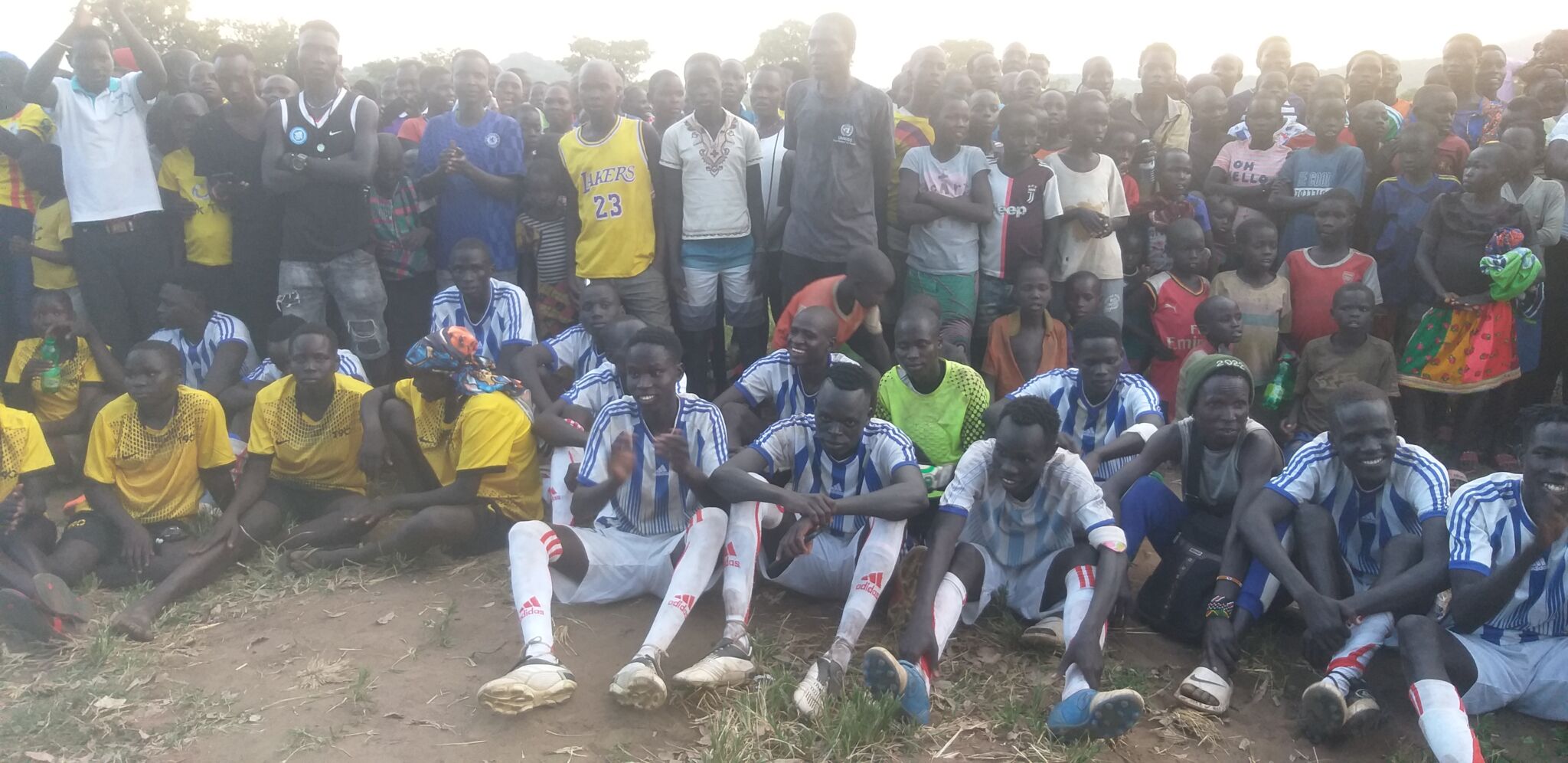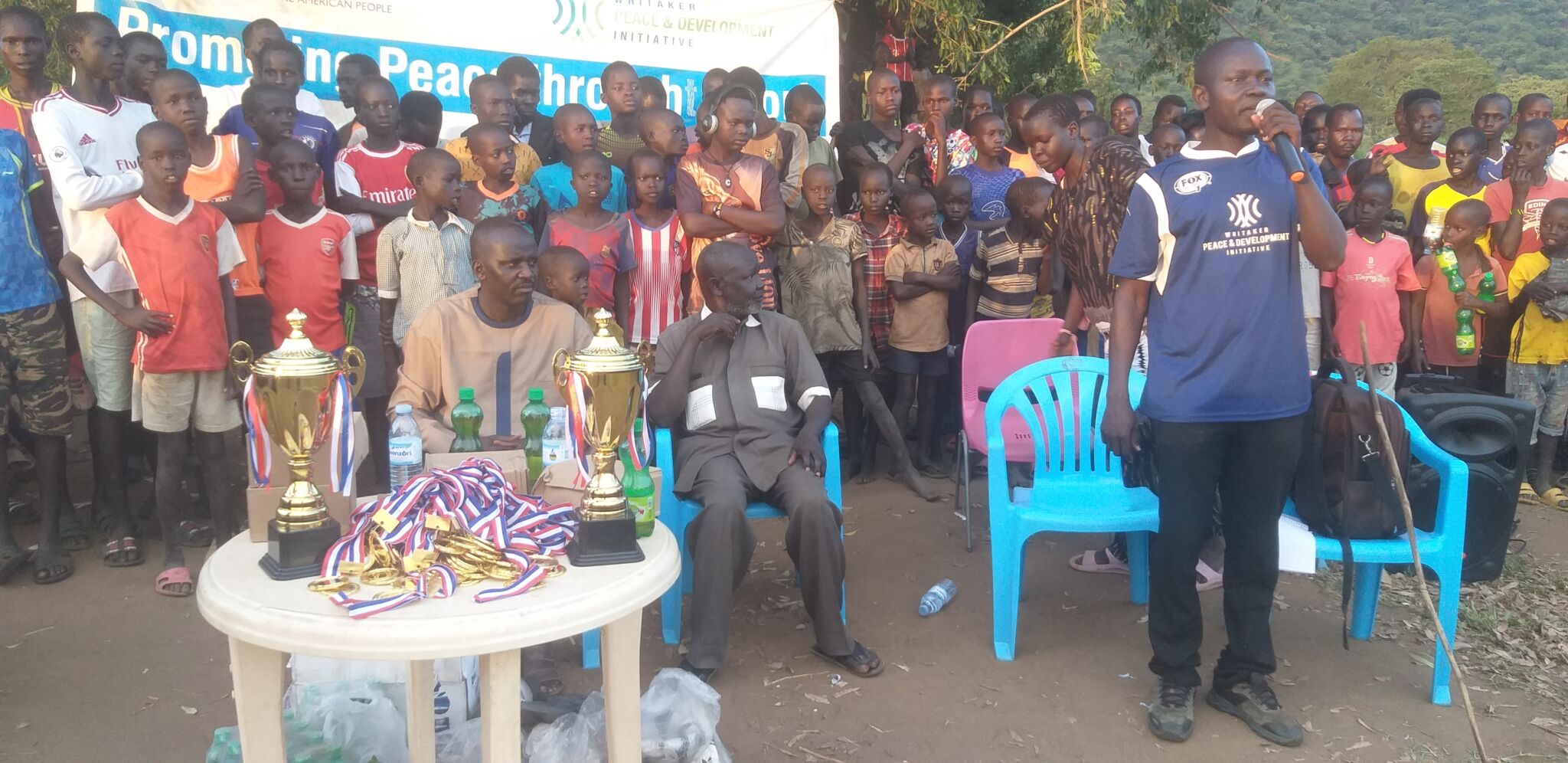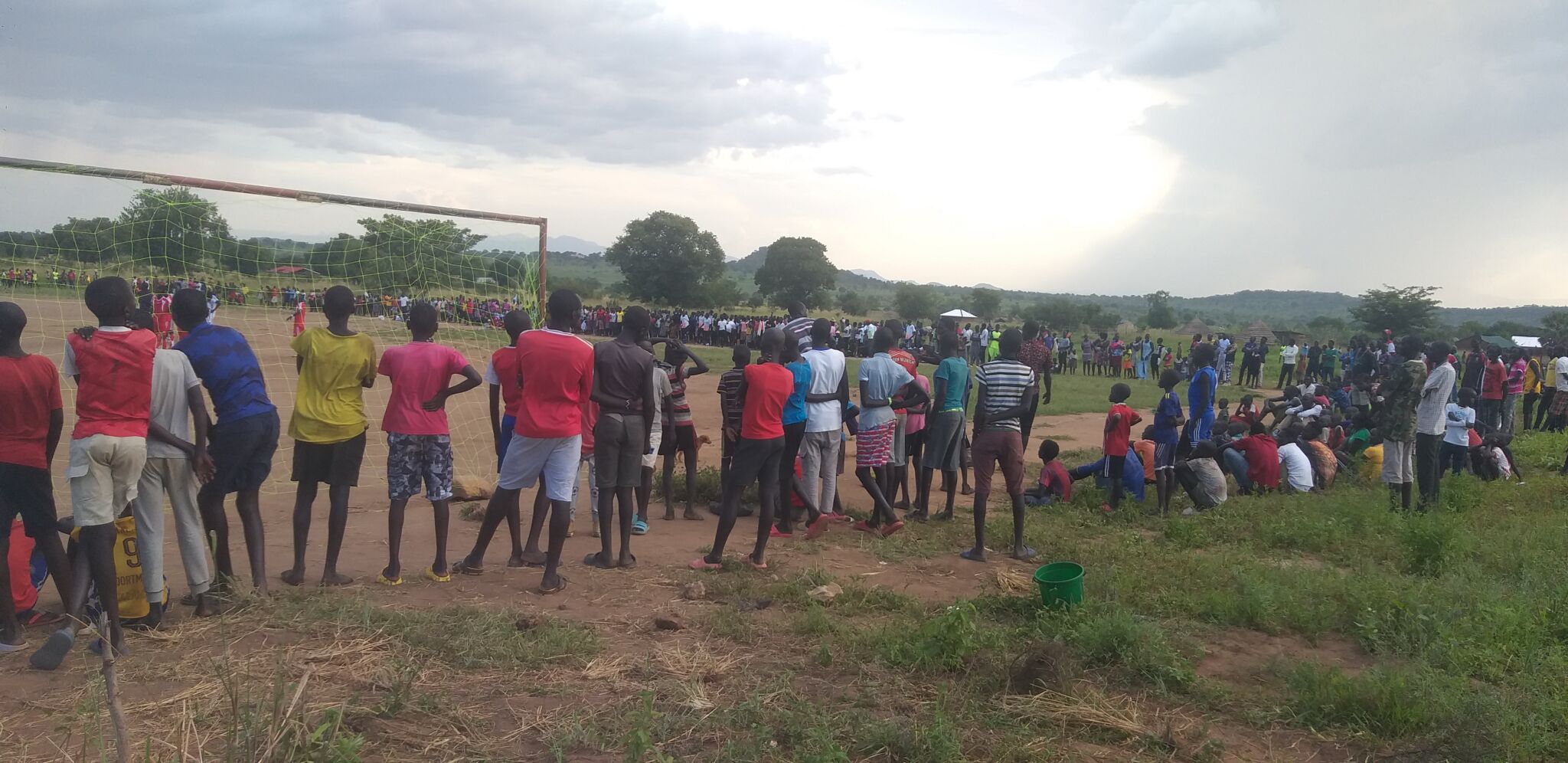March 20, 2023 – Peace Through Sports is a program designed and implemented by WPDI to empower young people and children in conflict- and violence-affected communities to help them become peacemakers and agents of positive transformation, tapping the potential of sports for teaching respect for oneself and the others. Throughout 2022, WPDI, in partnership with DT Global, a Shejeh Salam project with funding from USAID, ran a deployment of the sports-based initiative in Budi County, Eastern Equatoria State. Our goal was to take young people at risk through an integrated program combining sport practice with a mix of courses on conflict resolution, to instill in them a culture of peace, and on entrepreneurship, to improve their employability. The most talented and motivated participants also receive training in coaching, refereeing and sports management. One aim was also to provide them with a platform for entertainment and peer-interaction that diverts their minds from the widespread violence, conflict and instability in their local communities. Indeed, prior deployments of the program, in camps for displaced persons, for example, have demonstrated to us that participation in sports competitions, civic engagement and peace events provide a creative and positive outlet for young men and women. It is a fact that, in places marked by unemployment and marginalization, youth idleness will often create conditions for engaging in illegal activities or enrollment in gangs or armed groups, as local stakeholders have repeatedly reported to us. Those are some of the problems that we seek to address through a program that has been proved to have positive results in terms of civic engagement and psychosocial support to at-risk youths.
The project supported 16 teams with a total of 272 youths across the four payams of Budi County: Ngarich, Kikilia, Lotukei and Homiri. Each payam supported 2 women football teams and 2 male teams, bringing the total to 8 female teams and 8 male teams.

The initiative culminated in a so-called Peace Engagement Day, which involved all-day sports-based peacebuilding activities providing the community and team players with a forum in which they could come together and discuss important issues affecting their communities and to disseminate messages of forgiveness and reconciliation. More specifically, the initiative sought to foster interactions between sports teams from different communities of Budi County to help foster better relations amongst different youth groups in the payams through football, community dialogues and life skills training sessions. During the event, 6 female and 4 male teams each with 17 players participated in football games that included the dissemination of peace messages by the coaches and community leaders.

This combination of sportive and civic activities, including tournaments and training practice sessions for players and coaches, has been widely and warmly welcomed by Budi community members of all ages. They viewed the project as addressing their needs and promoting peaceful interaction and social cohesion amongst the different communities of the County. The activities have attracted all categories of community members. Moreover, they have been recognized as helping with issues such as high consumption of alcohol among youths and idleness. We consider it a success that the program was described as a unique vector for educating youth and communities at large on attitudes, values and behaviors conducive to reduced violence and stronger conditions for lasting peace.

The early and rapid success of Peace Through Sports in Budi has also come with lessons to be reflected upon for future action. Firstly, we have seen how passionate many young women have felt about the program, leading us to recognize the need to increase female participation, especially in the context of our fight for female empowerment as a means to create communal peace. Secondly, we have noted the need to increase, in this region, support for sporting activities that promote health, wellbeing, and harmony. Finally, we have observed a strong demand for practical skills, in conflict resolution but also in vocational areas, that we will seek to further address in the coming months and years.
In partnership with
